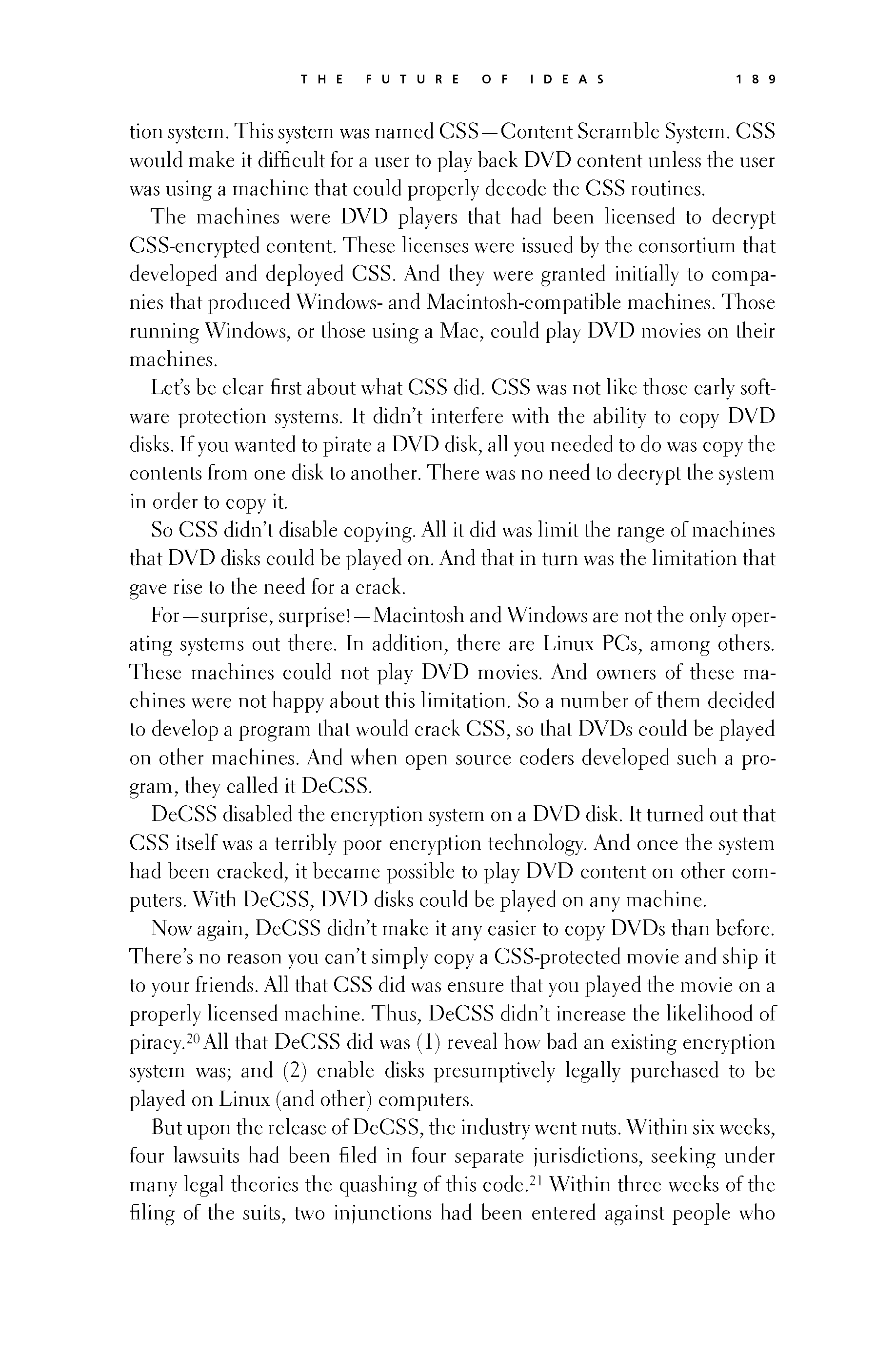 p188 _
-chap- _
toc-1 _
p189w _
toc-2 _
+chap+ _
p190
p188 _
-chap- _
toc-1 _
p189w _
toc-2 _
+chap+ _
p190
tion system. This system was named CSS -- Content Scramble System. CSS
would make it difficult for a user to play back DVD content unless the user
was using a machine that could properly decode the CSS routines.
The machines were DVD players that had been licensed to decrypt
CSS-encrypted content. These licenses were issued by the consortium that
developed and deployed CSS. And they were granted initially to compa-
nies that produced Windows- and Macintosh-compatible machines. Those
running Windows, or those using a Mac, could play DVD movies on their
machines.
Let's be clear first about what CSS did. CSS was not like those early soft-
ware protection systems. It didn't interfere with the ability to copy DVD
disks. If you wanted to pirate a DVD disk, all you needed to do was copy the
contents from one disk to another. There was no need to decrypt the system
in order to copy it.
So CSS didn't disable copying. All it did was limit the range of machines
that DVD disks could be played on. And that in turn was the limitation that
gave rise to the need for a crack.
For -- surprise, surprise! -- Macintosh and Windows are not the only oper-
ating systems out there. In addition, there are Linux PCs, among others.
These machines could not play DVD movies. And owners of these ma-
chines were not happy about this limitation. So a number of them decided
to develop a program that would crack CSS, so that DVDs could be played
on other machines. And when open source coders developed such a pro-
gram, they called it DeCSS.
DeCSS disabled the encryption system on a DVD disk. It turned out that
CSS itself was a terribly poor encryption technology. And once the system
had been cracked, it became possible to play DVD content on other com-
puters. With DeCSS, DVD disks could be played on any machine.
Now again, DeCSS didn't make it any easier to copy DVDs than before.
There's no reason you can't simply copy a CSS-protected movie and ship it
to your friends. All that CSS did was ensure that you played the movie on a
properly licensed machine. Thus, DeCSS didn't increase the likelihood of
piracy.[11-20] All that DeCSS did was (1) reveal how bad an existing encryption
system was; and (2) enable disks presumptively legally purchased to be
played on Linux (and other) computers.
But upon the release of DeCSS, the industry went nuts. Within six weeks,
four lawsuits had been filed in four separate jurisdictions, seeking under
many legal theories the quashing of this code.[11-21] Within three weeks of the
filing of the suits, two injunctions had been entered against people who
[[189]]
p188 _
-chap- _
toc-1 _
p189w _
toc-2 _
+chap+ _
p190